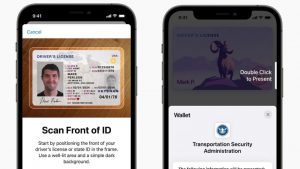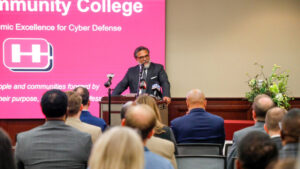New Mexico residents can now add their driver’s license or state ID cards to their Apple and Google Wallets. The move, according to the New Mexico Motor Vehicle Division (MVD), will allow residents to seamlessly and securely add and present their IDs using their mobile device for certain purposes in the state and nationwide.
The Georgia Department of Transportation (GDOT) has selected Plenary Broadband Infrastructure (PBI) as the Operations, Maintenance and Commercialization (OMC) partner for the department’s upcoming broadband project.
Following successful beta testing, the Department of Education has officially released the 2025–26 Free Application for Federal Student Aid (FAFSA).
University of Arizona Chief Information Officer (CIO) Barry Brummund announced that he will retire effective Jan. 17, 2025.
National Cyber Director Harry Coker announced a new toolkit to help build and strengthen cybersecurity ecosystems during an event at Hinds Community College in Mississippi.
The Department of Education is urging states, districts, and schools to adopt policies addressing the use of student personal devices in schools, and it issued new guidance to aid government and school leaders in developing their new policies.
The Kansas Department of Labor (KDOL) has completed a massive upgrade to its online system for accessing unemployment insurance (UI) benefits.
The Pennsylvania Broadband Development Authority (PBDA) will distribute more than 9,100 laptops to community institutions across the commonwealth to support residents who do not have access to digital technology.
New York State has developed its first-ever customer experience strategy, a new initiative aimed at transforming how New Yorkers interact with government services and improving government operations on a day-to-day basis.
The Delaware Department of Health and Social Services (DHSS) has added new data and reports to its CostAware website, which is designed to help state residents understand how their health care dollars are spent by comparing the variation of average costs for different episodes of care and medical services based on actual medical claims in Delaware.













